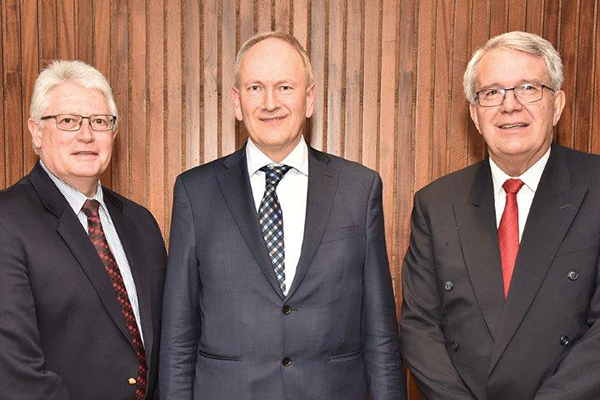Latest News Archive
Please select Category, Year, and then Month to display items
18 November 2024
|
Story Jacques Maritz
|
Photo Supplied
 Muhammad Cassim, a second-year student in the Department of Engineering Sciences in the Faculty of Natural and Agricultural Sciences.
Muhammad Cassim, a second-year student in the Department of Engineering Sciences in the Faculty of Natural and Agricultural Sciences.
Muhammad Cassim, a second-year student in the Department of Engineering Sciences in the Faculty of Natural and Agricultural Sciences at the University of the Free State, will participate in the winter university project in Pskov, Russia, from 25 November to 9 December 2024.
The winter school aims to strengthen relationships among young engineers and deepen international interaction via skills improvement, joint projects, and social cohesion. The programme boasts a densely packed education block, project block, and cultural block.
Cassim is part of the UFS Grid Related Research Group and actively participates in research centred on complexity science. He intends to complete his BSc Physics degree with Engineering subjects and progress towards postgraduate studies in the UFS Department of Physics.
He is currently working on verifying experimental developments in the field of synchronisation in complex networks. While he has already completed this high-performance computing training in his first year under the leadership of Albert van Eck (Director, UFS E-research), he is looking forward to the masterclasses in holographic modelling, deep learning, direct laser deposition, and database. Closely resembling his current research, he will have the opportunity to gain more experience in the use of set theory and graph theory in solving digital information processing problems.
For more information about international scholarships for study abroad opportunities, contact Mbali Moiketsi in the Office for International Affairs.
Cassim’s student profile is the culmination of the department’s strategy to produce young applied scientists who are subjected to the culture of research during their undergraduate study and could articulate with ease to other departments for postgraduate studies. The department aims to align with the UFS’ Vision 130 by producing competitive students who can operate in the postgraduate paradigm with the digital themes of veterinary science and ecological engineering science.
Tutu-Jonker Prestige Lecture Series tackles reconciliation
2017-11-13

Prof Rian Venter; Prof Eddy van der Borght, guest speaker from Vrije
Universiteit, Amsterdam; and Prof Fanie Snyman, Dean of the Faculty
of Theology and Religion at the UFS.
Photo: Supplied
The Faculty of Theology and Religion recently hosted the annual Tutu-Jonker Prestige Lecture Series at the Bloemfontein Campus of the University of the Free State (UFS). The purpose of the lecture series is to address modern-day and pressing social challenges from a theological and religious perspective.
With the theme Religions and reconciliation of conflicting identities, guest speaker and Desmond Tutu Chair on reconciliation at the Faculty of Theology: Vrije Universiteit Amsterdam, Prof Eddy van der Borght, spoke about the reformation in the context of shifting European identity formations.
Reconciliation versus social identity
“My focus is on what the Christian concept of reconciliation means for reconciliation in society,” said Prof Van der Borght. He deliberated the global problem of conflict generated by diverse social identities. He also emphasised that religion has huge resources to contribute towards overcoming conflicting identities.
“The theory is that religions know about reconciliation, while in practice it is much more complicated, because often religions are part of the problem of conflict,” he says. He said religions are often the problem in social cultural identities, especially regarding conflict involving different nations, racial, and ethnic groups.
Honouring prominent theologians Tutu and Jonker
The name Tutu-Jonker originates from the two theologians, Emeritus Archbishop Desmond Tutu and the late Prof Willie Jonker, who are both regarded as prominent theologians known for their emphasis on reconciliation in South Africa. The significance of combining the two names is said to bring together two different theological traditions (Anglican and Reformed), cultural groups, and races.
Prof Fanie Snyman, Dean of the Faculty of Theology and Religion, said, “This will also serve the purpose of a welcoming culture at the faculty, embracing diversity and embodying reconciliation.” Both of these theologians received honorary doctorates in Theology from the UFS.